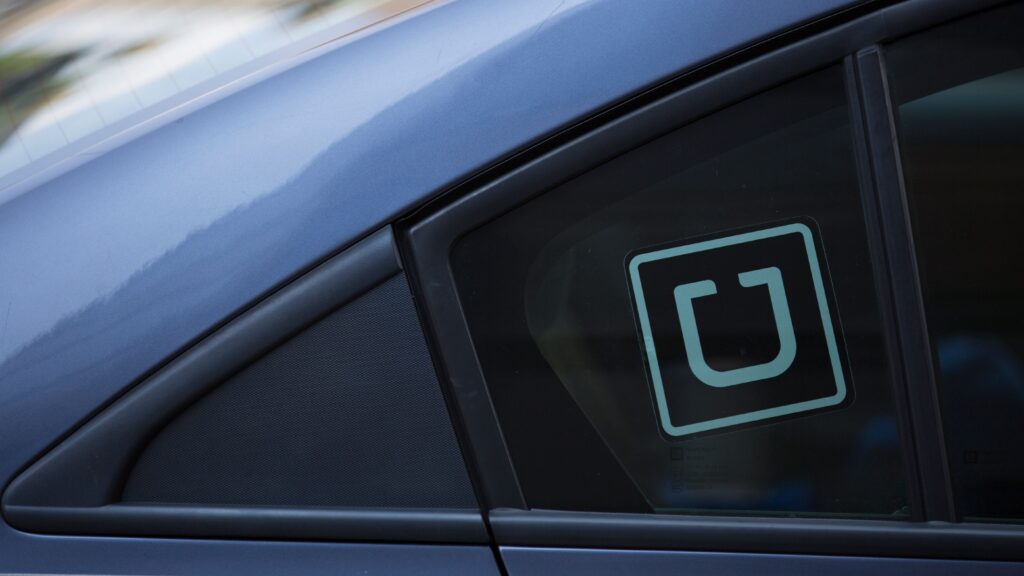For patients of the Community of Hope and Mary’s Center clinics in Washington, D.C., getting to their medical appointments can be a challenge — many live far from public transit or lack cars. If they’re pregnant, the fallout can be especially harmful if they miss prenatal doctor visits, risking the baby’s and mother’s health.
That’s why ride-sharing company Uber, which has for years been searching for a viable way into the $4 trillion health care market, swooped in to offer hundreds of pregnant patients in D.C. free rides to appointments in 2021 and 2022. Uber says patients who participated in the pilot were slightly more likely to get prenatal care, and it’s shopping the data around to insurers in a bid to get them to pay for the service.
Medicaid plans typically offer patients a benefit covering non-emergency medical transportation, but it often requires providers to call into a third-party dispatch service that can be difficult to coordinate with patients in real time, Community of Hope perinatal care and transportation coordinator Hannah Low told STAT.
Using a consumer app like Uber could make the process of organizing and taking rides easier both for staff and patients — especially when clinics have a designated ride coordinator to guide them, she said. “I can get on a call with a patient and talk through, ‘this is where the car is,’ or patients will call me and say, ‘I can’t see the car,’” she said. “You don’t necessarily have that ability if you don’t have a person who’s able to go into the system and do that.”
The stakes for missing prenatal appointments are high, especially as maternal mortality rates surge year over year; the United States has among the worst rates for high income countries. Black and Indigenous women are two to three times more likely than white women to die from pregnancy-related issues, according to Centers for Disease Control and Prevention data.
“The consequences of not getting prenatal care are devastating,” said Sarah Coombs, director for health systems transformation at the National Partnership for Women & Families, which was not involved in the pilot. Aside from troubling maternal mortality risks, babies whose mothers don’t get prenatal care are more likely than other infants to experience complications, she said.
Uber isn’t the only tech company seeking to address missed appointments. Some, like Babyscripts, offer digital blood pressure cuffs and scales to make it easier for clinicians to monitor pregnant patients, especially when they can’t make in-person appointments. Clinics offering Babyscripts to their patients told STAT earlier this year that the devices could help reduce emergency department visits later in pregnancy.
But clinics that treat largely low-income and underserved populations are limited by what insurance companies agree to pay for, because they and their patients might not have enough cash to pay for services out of pocket. And convincing insurers to offer new benefits takes time, Coombs said.
“It’s a return on investment. They have to show proof that it works, proof that it saves money, proof that it works across the country.”
Inside the pilot
In the middle of last year, a health behavior research company called Surgo Health approached Uber with the idea for the pilot. The goal was studying the impact of geography on health inequities; some members of Surgo’s board knew people at Uber, which was willing to absorb the cost of rides temporarily. Uber’s social impact team also worked on the pilot.
“It’s really obvious that the areas that are the highest risk, where health inequities are happening, are far away from hospitals and not always super accessible via public transportation,” said Hannah Kemp, a vice president at Surgo.
Between January 2021 and June 2022, Mary’s Center and Community of Hope offered roughly 450 patients about 4,500 free Uber rides, either through a special app for coordinators or by giving patients a voucher they could use on their own apps. Rides to and from could run up to $200, Low said.
Much of the legwork fell on ride coordinators, who spoke to patients regularly and understood their individual challenges, such as whether they preferred text messages or relied on a landline. “Having someone embedded in the clinic who can talk to a patient about their rides and their appointments and whatever care coordination needs they have is really special,” Low said.
Still, patients ran out of minutes or changed phone numbers, and it wasn’t always easy to reach them, Low said.
Surgo and Uber said the pilot increased appointment attendance among people who faced transportation challenges by about 5 percentage points, and that about three-quarters of patients said it would be more difficult to get care without the free rides. Patients also said they saved an hour of time per appointment across a total of about a dozen prenatal appointments.
Following the conclusion of the pilot, some state Medicaid plans and managed care groups have agreed to pay for the service, but Uber’s goal is to get more of them to do so outside the scope of the pilot, said its global head of health, Caitlin Donovan. “We believe in a world where you don’t solve a problem grant by grant, study by study.”
Now, Uber’s “spending a lot of time talking with Medicaid plans about how to structure that [transportation] benefit design, and how to administer that benefit,” Donovan said. “Existence of the benefit alone is not enough.”
Still, simply administering rides isn’t enough to address troubling maternal mortality rates and racial disparities facing low-income patients, Katherine Hempstead, senior policy adviser at the Robert Wood Johnson Foundation, told STAT. “Of course the quality of prenatal care matters too, which is a problem that can’t be solved with transportation.”


